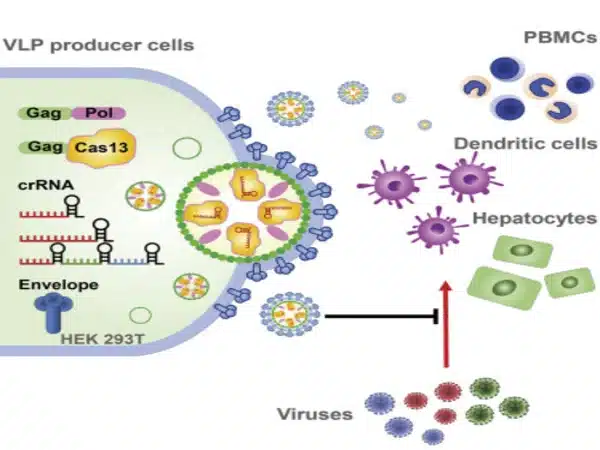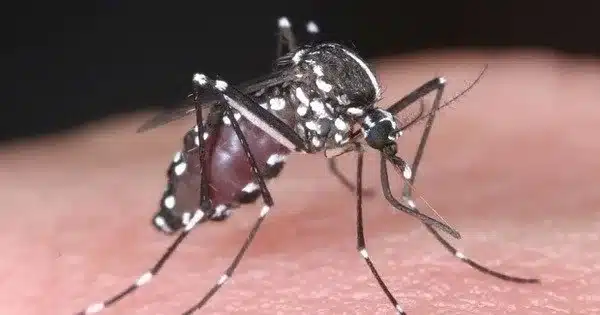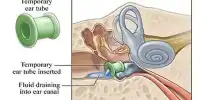The KU Leuven Rega Institute and CD3 researchers have developed an ultrapotent inhibitor of the dengue virus, which causes the tropical disease dengue. The groups worked closely with Janssen Pharmaceutica, N.V. The antiviral molecule is extremely effective against all known dengue variants and has the potential to be used for both therapeutic and preventive purposes. The team’s findings were published in Nature.
Dengue infects up to 400 million people each year, sickens up to 100 million, and kills thousands. A high fever and severe muscle and joint pain are symptoms of the disease. Some patients experience subcutaneous bleeding or capillary leakage as well.
The mosquito-borne dengue virus causes the disease, which is found in nearly all (sub)tropical regions, but especially in Latin America and Asia. The frequency of outbreaks is increasing, and the virus is expected to affect billions more people in the coming decades as it spreads to other regions as a result of climate change and other global trends. Dengue fever was already on the World Health Organization’s list of ten global health threats in 2019.
No antiviral drugs are currently available to prevent or treat dengue. This may change thanks to the breakthrough discovery of teams led by Johan Neyts (Rega Institute at KU Leuven) and Patrick Chaltin (CD3/CISTIM Leuven vzw), which was carried forward in partnership with a team led by Marnix van Loock (Janssen Pharmaceutica, N.V.).
Potent and safe dengue drugs that can be easily taken as tablets could offer anyone effective protection for a certain period of time. Consider people who live in areas where there is a dengue outbreak: they could take a dengue drug for a few days or weeks.
Professor Johan Neyts
Blocking the ‘copier’ of the virus
According to Professor Johan Neyts of the Rega Institute at KU Leuven, the antiviral has a unique mechanism. “We demonstrated, in collaboration with Professor Ralf Bartenschlager’s research group at Heidelberg University, that our inhibitor prevents the interaction of two viral proteins that are part of a kind of copier for the virus’s genetic material.” If this interaction is disrupted, the virus is unable to replicate its genetic material. As a result, there are no new virus particles produced.”
Together with Professor Xavier de Lamballerie (Aix-Marseille University), the team demonstrated that the antiviral is highly effective against all known dengue virus variants.
The inhibitor was also tested in mice by the researchers. “Even a low dose of the drug administered orally proved to be very effective,” says Suzanne Kaptein (Rega Institute at KU Leuven). Furthermore, even when the infection is at its peak, the treatment is still effective. Within 24 hours of starting treatment, the number of virus particles in the blood dropped dramatically in these cases. This demonstrates how effective the antiviral drug is.”

Also suitable for prevention
Research in mice suggests that the inhibitor could also be used for prevention purposes. These findings are cause for optimism, as the existing dengue vaccine only offers partial protection.
“Potent and safe dengue drugs that can be easily taken as tablets could offer anyone effective protection for a certain period of time,” says Professor Johan Neyts (KU Leuven). Consider people who live in areas where there is a dengue outbreak: they could take a dengue drug for a few days or weeks. The tablets could also protect tourists or NGO workers while they are in high-risk areas.”
The antiviral medication will be developed in an easy-to-administer formulation that can be optimised for disease treatment and prevention in dengue-endemic tropical and subtropical regions.
Twelve-year search
The development of the antiviral was a long haul, says Professor Johan Neyts (KU Leuven). “We started this project in 2009. First, we examined many thousands of molecules in a compound library of the Centre for Drug Design and Discovery (CD3) to find one or more molecules that inhibit the virus in lab-grown cells. In other words: we started looking for a needle in a haystack. As soon as we were able to identify such molecules, the medicinal chemists at CD3 could start to work with them. They created many versions of the molecules to boost their efficacy against the virus.”
According to Patrick Chaltin of the Centre for Drug Design and Discovery, there are four types of dengue viruses, and the molecule must be equally effective against all four. “Achieving that goal was no easy task: the optimisation process involved over 2000 steps.” Years of intensive collaboration have resulted in an ultra-potent dengue inhibitor, which we are delighted to present.”
Since 2013, scientists from Janssen Pharmaceutica, including Marnix Van Loock, Olivia Goethals, and Tim Jonckers, have worked closely with the KU Leuven teams to advance the chemical series.
Ambitions beyond dengue
KU Leuven and CD3 have ambitious plans to combat other viruses as well. For example, they are looking for broad-spectrum antiviral drugs to combat coronaviruses. “In the future, we want to develop a range of antiviral molecules against the different virus families with pandemic potential, not just coronaviruses,” says Patrick Chaltin. This will necessitate significant financial resources, which we are currently attempting to acquire.”
















